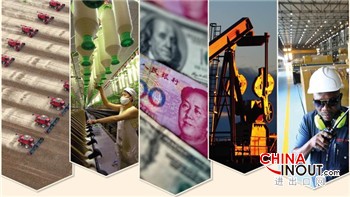今年夏天,中国散户投资者涌入股市为全球市场敲响了警钟。如今,相同的情况正在大宗商品市场上演,金属成了押注中国经济放缓的首选工具。
11月,中国的投资基金在上海期货交易所(Shanghai Futures Exchange)竞相交易,使全球铜价跌至6年低点、镍价跌至10年低点。
随着中国需求刺激的金属价格涨势告终,此轮价格波动凸显了中国对全球金属价格的影响力。大宗商品价格下滑打击了全球矿商的股价——上周五英美资源公司(Anglo American)股价跌至创纪录低点——以及智利等矿产国的财政收入。
这还导致中国金属生产商宣布减产。据路透社(Reuters)报道,上周六,中国9家大型铜生产商同意了2016年削减精铜产量逾20万吨的初步计划。
“他们推动大宗商品市场价格下跌的方式,与他们推动中国股市大涨的方式差不多,”伦敦一名银行人士称,“这让我大开眼界——这些市场的重要性到底有多大。”(中国进出口网)

Over the summer the surge of Chinese retail investors into equities alarmed global markets. Now the same is happening in commodities, as metals become a favourite tool to bet on a slowing Chinese economy.
Investment funds in China have piled into trading on the Shanghai Futures Exchange this month, sending global prices for copper down to a six-year low and nickel to a 10-year low.
The price moves highlight China’s influence on global metals prices as the boom that was spurred by the country’s demand comes to an end. Lower commodity prices have hit shares in global miners, sending Anglo-American to a record low on Friday, as well as revenue in producing countries such as Chile.
It has also led producers in China to announce cutbacks. On Saturday, nine large copper producers in the country agreed an initial plan to cut refined metal production by more than 200,000 tonnes in 2016, Reuters reported.
“Much the same way they leapt on the Chinese equity market on the way up they’ve leapt on [the] commodities market on the way down,” one banker in London said. “It’s been an eye opener for me — how much weight those markets actually have.”